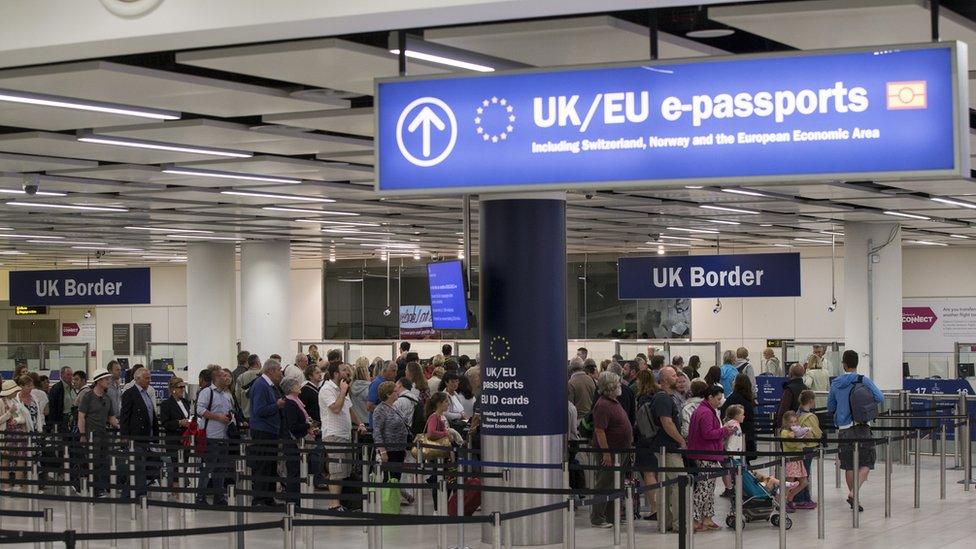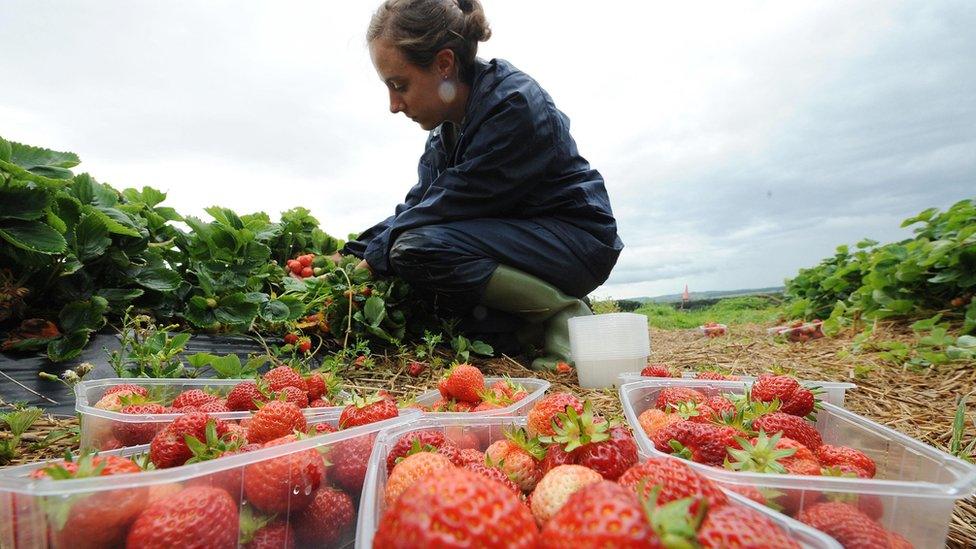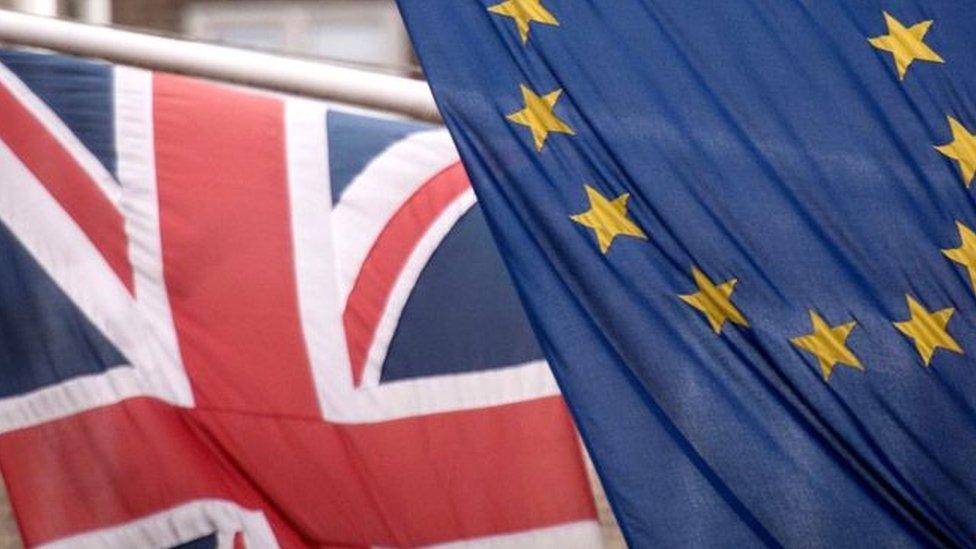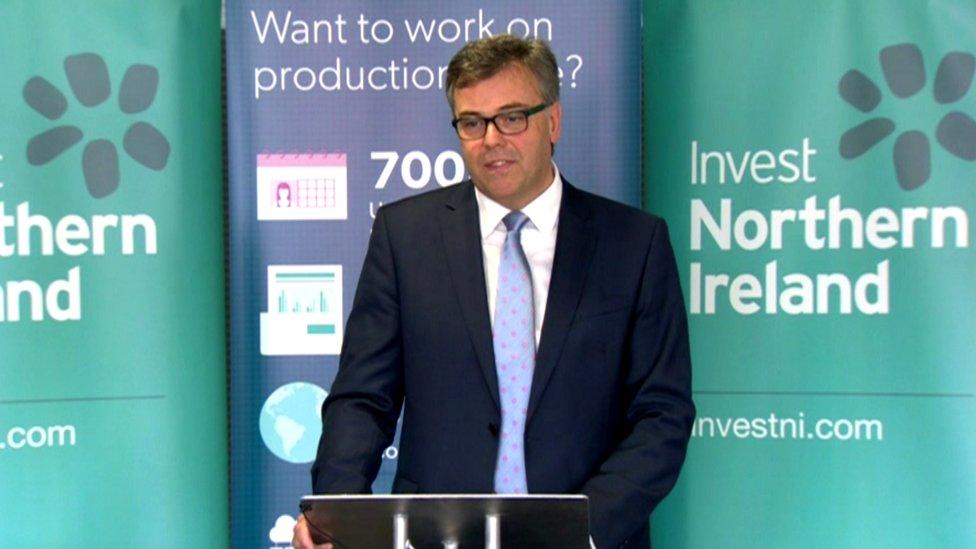DUP criticise post-Brexit migration plans
- Published

The DUP have criticised the "very rigid" approach taken by Migration Advisory Committee (MAC) on post-Brexit immigration policy.
The party made the comment after meeting business representatives.
The MAC recommendations informed the government White Paper on migration. It would put new restrictions on lower skilled migrants.
But the DUP said "appropriate future access to low-skilled labour in Northern Ireland is important".
The party points to the potential for local firms to be placed at a competitive disadvantage to those in the Republic of Ireland where there would not be similar labour market constraints.
The NI Executive's initial response to Brexit in August 2016 also called for a policy which was flexible enough to allow access to "unskilled as well as highly skilled labour".
The government has proposed that lower-skilled and unskilled migrants will not routinely be able to come to the UK and settle permanently.
However, as a "transitional measure", people from "low-risk countries" in Europe and further afield will be able to come to the UK, without a job offer, and seek work for up to a year.
The scheme is designed to fill vacancies in sectors such as construction and social care which are heavily dependent on EU labour and which ministers fear could struggle to adapt when free movement ends.
There will be a "cooling off period" after a year, meaning people will be expected to leave at that point and not to apply again for a further 12 months.
The government has not yet decided on a minimum salary requirement of £30,000 for skilled migrants seeking five-year visas but is undertaking further consultation.

More than half of the seasonal migrant workers in Northern Ireland are from Romania
The DUP said there is "common accord across all regions of the UK" that a £30,000 salary threshold is being seen as "far too Londoncentric" and not reflective of wage levels in local economies.
The MAC recommendations, published in September, said Northern Ireland should not have a separate low skill immigration regime after Brexit.
It acknowledged that as the only part of the UK with a land border with the EU, Northern Ireland could be particularly sensitive to firms relocating economic activity to the Irish Republic after Brexit.
However, it points out that the national minimum wage in the Republic of Ireland, at approximately £8.50 per hour, is already higher than the £7.38 in the UK (or £7.83 for those over 25).
Meanwhile the Head of the Northern Ireland Civil Service has said there is "deep disappointment" that the emerging policy on immigration "does not appear to be sensitive to the unique risk to the Northern Ireland economy".
David Sterling made the comments in a letter to the Northern Ireland Office sent shortly before Christmas.
- Published25 November 2018

- Published4 November 2018

- Published11 October 2018

- Published2 October 2018
